EXECUTIVE SUMMARY
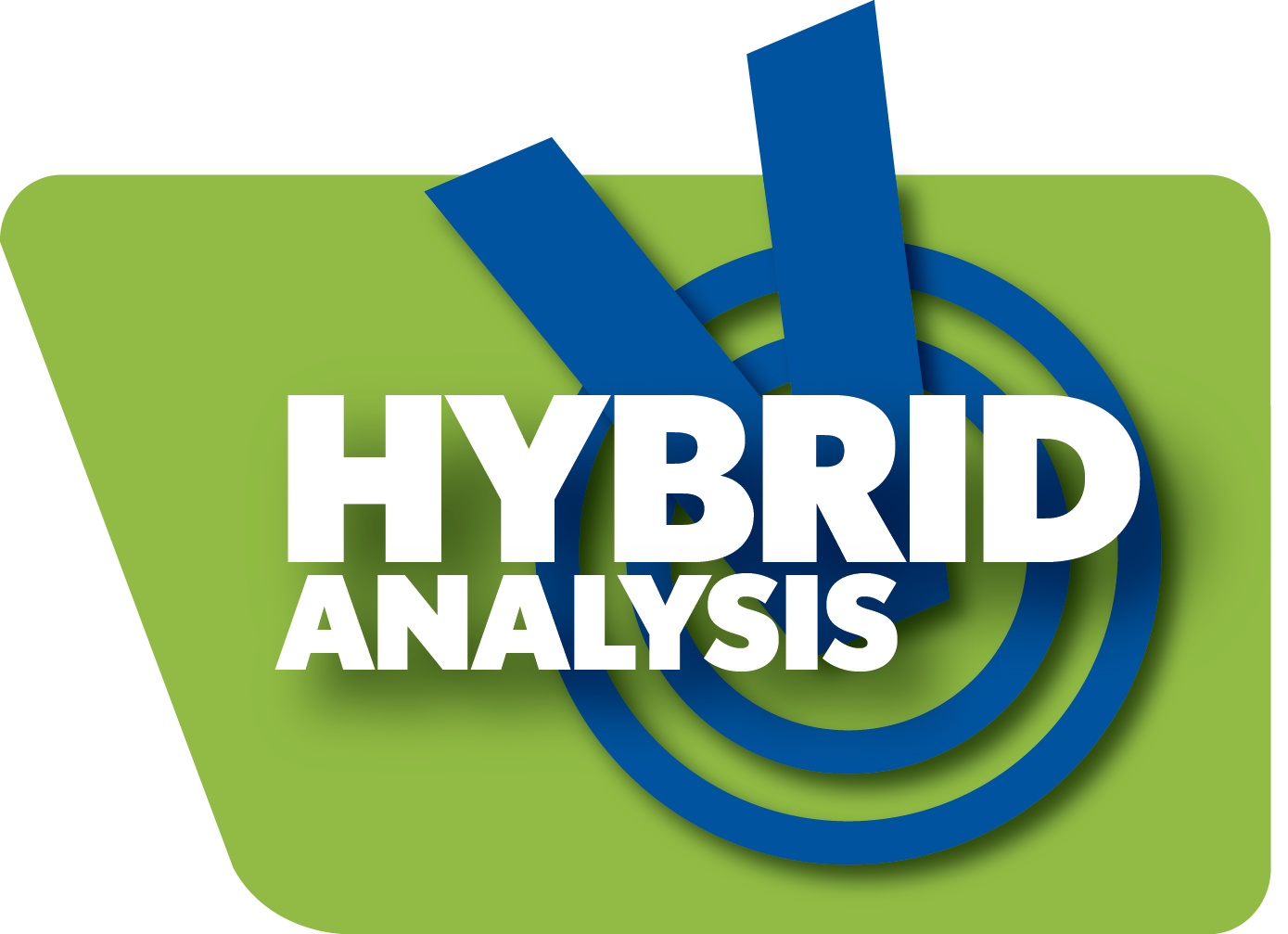
The Vincentric Hybrid Analysis provides consumers with information regarding the cost of owning a hybrid vehicle compared to its closest all-gasoline powered counterpart. This year, results demonstrated that approximately one quarter of hybrids will save consumers money, with seven of the 29 hybrids offering a lower total cost of ownership than their closest all-gas equivalent.
The average price premium for a hybrid was $5,322, with an average fuel cost savings of $1,932. When Vincentric examined all costs to own and operate a hybrid, the average cost of ownership was $2,493 more than the all-gasoline powered correspondents.
HYBRID ANALYSIS
At Vincentric, we have prepared different reports to help users understand the financial dynamics of hybrid vehicles compared to their closest all-gasoline counterparts. We help users better understand the expected costs (or savings) of driving a hybrid so more informed decisions can be made when considering the purchase of a hybrid vehicle.
Fuel prices used in these reports are based on a weighted average over the previous five months, rather than the exact prices you might see at a gas station today. This is done to ensure that the analysis reflects current market trends and not market extremes.
The reports assume the vehicle is owned for five years with 15,000 miles driven annually. The numbers shown are U.S. averages, however, the same analysis can be done for any state or the District of Columbia.
Finally, please note the reports below use data from our June 2016 Vincentric database update. We compare hybrid vehicles to their closest all-gasoline powered equivalents based on a similar trim level. Cost differentials may differ if other trims are analyzed. Read below for further analysis details.
Find full results here: Excel Report or PDF Report 
COST OF OWNERSHIP AND FUEL COST COMPARISON
There has been much debate over whether the premium price that hybrid vehicles command can be financially justified. However, in this analysis, seven hybrid vehicles, five of which fall into our luxury brand categories, had cost of ownership savings compared to their all-gasoline powered counterparts:
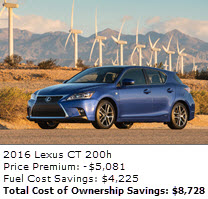 2016 Audi Q5 Hybrid Prestige 4D SUV ($4,484)
2016 Audi Q5 Hybrid Prestige 4D SUV ($4,484)- 2016 Ford Fusion Hybrid S 4D Sedan ($3,154)
- 2016 Lexus CT 200h 4D Sedan ($8,728)
- 2016 Lexus ES 300h 4D Sedan ($3,535)
- 2016 Lincoln MKZ Hybrid 4D Sedan FWD ($2,602)
- 2016 Toyota Avalon Hybrid XLE Plus 4D Sedan ($1,436)
- 2016 Toyota Prius C One 4D Hatchback ($1,276)
For those whose purchase of a hybrid is based upon minimizing the environmental impact and not strictly financially driven, the report identifies additional viable vehicles. The following hybrid vehicles had ownership costs that, although higher than their closest all-gas counterparts, were within $2,000 from that counterpart over the five-year ownership period.
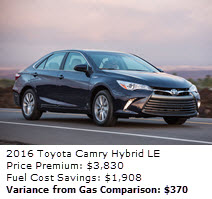 2016 Chevrolet Malibu Hybrid 4D Sedan ($1,507)
2016 Chevrolet Malibu Hybrid 4D Sedan ($1,507)- 2016 Hyundai Sonata Hybrid 4D Sedan ($1,257)
- 2016 Kia Optima Hybrid 4D Sedan ($713)
- 2016 Lexus NX 300h 4D Sedan FWD ($1,225)
- 2016 Toyota Camry Hybrid LE 4D Sedan ($370)
- 2016 Toyota Highlander Hybrid Limited 4D SUV AWD ($763)
- 2016 Toyota Prius Two 4D Hatchback ($1,755)
- 2016 Volkswagen Jetta Hybrid SEL Premium 4D Sedan ($1,356)
In addition to carbon emission improvements, hybrids are known for their improved fuel economy. The models that provide the greatest benefit and fuel cost savings over their closest gasoline -only counterparts are:
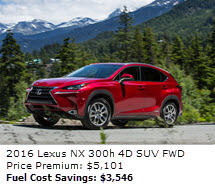 2016 Infiniti Q70 Hybrid 4D Sedan ($3,443)
2016 Infiniti Q70 Hybrid 4D Sedan ($3,443)- 2016 Lexus CT 200h 4D Sedan ($4,225)
- 2016 Lexus ES 300h 4D Sedan ($2,796)
- 2016 Lexus NX 300h 4D Sedan ($3,546)
- 2016 Toyota Avalon Hybrid XLE Plus 4D Sedan ($2,796)
Of course for those who are looking to minimize fuel purchases, it is important to know the hybrid vehicles with the lowest overall fuel costs. They are:
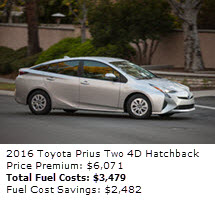 2016 Chevrolet Malibu Hybrid 4D Sedan ($3,897)
2016 Chevrolet Malibu Hybrid 4D Sedan ($3,897)- 2016 Ford Fusion Hybrid S 4D Sedan ($4,258)
- 2016 Toyota Prius Two 4D Hatchback ($3,479)
- 2016 Toyota Prius C One 4D Hatchback ($3,655)
- 2016 Toyota Prius V Two 4D Hatchback ($4,307)
Images shown may not reflect the specific trim level of the vehicle analyzed.
Further detail regarding the cost of ownership, fuel consumption and depreciation rates for each hybrid and its closest all-gas counterpart can be found in the full 2016 report.
WHY DO OWNERSHIP COSTS DIFFER BETWEEN HYBRIDS AND THEIR GAS COUNTERPARTS?
In most cases studied, the hybrid vehicle had a higher market price than its closest all-gasoline-powered alternative, which causes several cost factors to increase including depreciation, finance, opportunity costs and fees and taxes. The analysis shows that in approximately one quarter of the cases, fuel cost savings associated with hybrid vehicles are able to offset their price premium. However, hybrids are becoming less cost-effective as they lose their competitive edge due to the improved fuel economy of gas-powered combustion engines and falling fuel prices. Ultimately, it’s important for consumers to look at their needs and the specific models available to them because depending on the negotiated price, driving patterns and intended length of ownership, a hybrid can still be a great value.
Click here to view the press release announcing the Hybrid Analysis.
 See the 2016 Vincentric Best Value in America award winning hybrid vehicles.
See the 2016 Vincentric Best Value in America award winning hybrid vehicles.
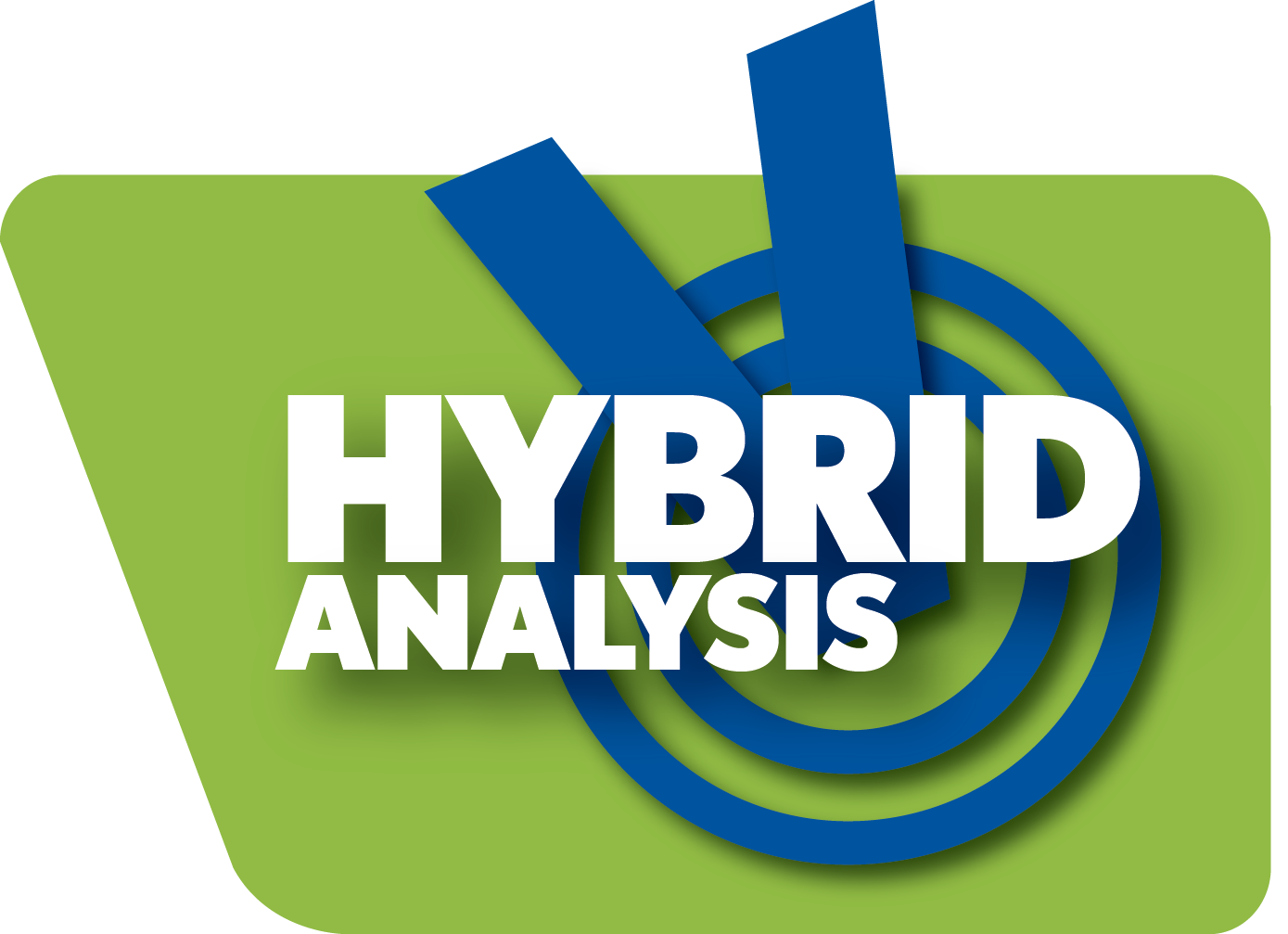 See the 2016 Vincentric Canadian Hybrid Analysis here.
See the 2016 Vincentric Canadian Hybrid Analysis here.
To be notified when additional special studies are prepared by Vincentric, please join our news list or you can follow us on Twitter.
|

If you are interested in learning more about other Industry Reports from Vincentric,
click here
|